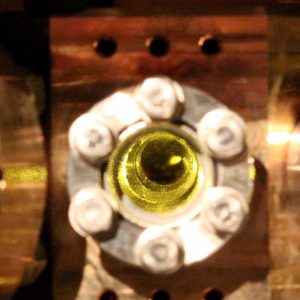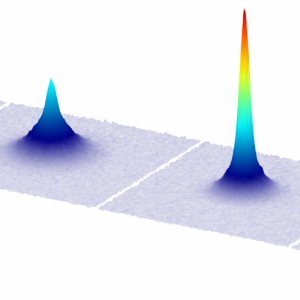ERBIUM NEWS
We have measured and analyzed the hyperfine structure of two lines, one at 583 nm and one at 401 nm, of the only stable fermionic isotope of atomic erbium as well as determined its isotope shift relative to the four most-abundant bosonic isotopes. Our work focuses on the J→J+1 laser cooling transitions from the [Xe]4f126s2(3H6) ground state to two levels of the excited [Xe]4f126s6p configuration, which are of major interest for experiments on quantum degenerate dipolar Fermi gases. From a fit to the observed spectra of the strong optical transition at 401 nm we find that the magnetic dipole and electric quadrupole hyperfine constants for the excited state are Ae/h=−100.1(3)MHz and Be/h=−3079(30)MHz, respectively. The hyperfine spectrum of the narrow transition at 583 nm, was previously observed and accurate Ae and Be coefficients are available. A simulated spectrum based on these coefficients agrees well with our measurements. We have also determined the hyperfine constants using relativistic configuration-interaction ab initio calculations. The agreement between the ab initio and fitted data for the ground state is better than 0.1%, while for the two excited states the agreement is 1% and 11% for the Ae and Be constants, respectively.[more]












